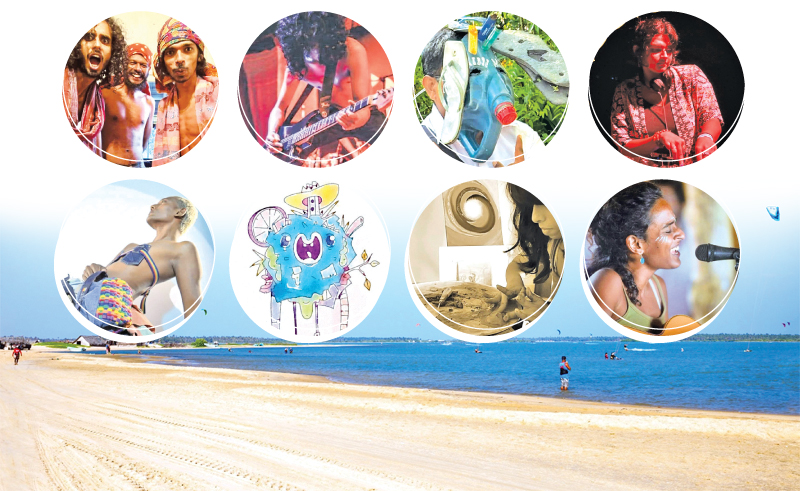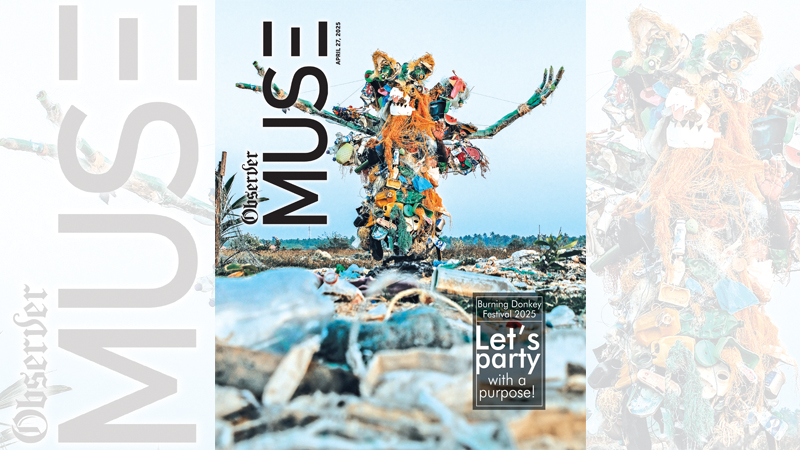 While scrolling through social media, I came across a vibrant poster for the Burning Donkey Festival 2025. I was instantly drawn in by the impressive mascot made entirely from discarded materials, which sparked my curiosity about the event.
While scrolling through social media, I came across a vibrant poster for the Burning Donkey Festival 2025. I was instantly drawn in by the impressive mascot made entirely from discarded materials, which sparked my curiosity about the event.
This amazing creation perfectly represents the festival’s spirit, taking place in Kalpitiya from May 2-4. The donkey is a unique animal in Kalpitiya, and merging this iconic figure with the contemporary issues facing the area is a promising artistic effort. As I explored their website, I discovered that the festival first launched in 2019 with a mission to party with a purpose. Now in its second year, the festival beautifully blends art, music, and conscious living while addressing important issues like over-tourism and plastic waste.
The founder of the Burning Donkey Festival and Kite Surfing Lanka, Dilsiri Walikala outlined his vision for the festival during a recent interview with Observer Muse.
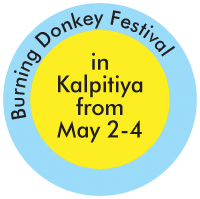 “In 2019, we recognized a significant gap in Sri Lanka’s festival offerings — there were parties, but not a holistic celebration that engaged the entire family through art, activities, and discussions,” Dilsiri said starting the discussion.
“In 2019, we recognized a significant gap in Sri Lanka’s festival offerings — there were parties, but not a holistic celebration that engaged the entire family through art, activities, and discussions,” Dilsiri said starting the discussion.
This realization led to the creation of the inaugural festival, which drew around 300 attendees over six days. However, the festival was put on hold in 2020 due to the Covid-19 pandemic, and it wasn’t until now that it has made a triumphant return.
Dilsiri said that the concept of the “Burning Donkey” goes beyond mere entertainment. “The festival’s name reflects the burning issues we face in Sri Lanka today—like pollution, over-consumption, and the effects of over-tourism.” he said. This year’s event is designed not only as a fun-filled experience but also as a platform for raising awareness and fostering open dialogues about these challenges facing the nation.
Festival lineup
The festival promises an eclectic mix of programs, including performances by local artists, yoga and wellness workshops, movie screenings, music concerts and interactive art installations. “We’re offering a diverse lineup where music, art, and wellness intertwine,” Dilsiri said. He expressed pride in providing local artists with a stage to showcase their talents, with performances from a variety of genres, including experimental music and traditional African rhythms.
Among the festival highlights is the “Common Area,” where attendees can participate in upcycling initiatives, transforming ocean plastic into meaningful artworks. This hands-on approach aligns with the festival’s strong zero-waste policy, a commitment that Dilsiri describes as a fundamental aspect of their ethos: “We want to show that it is possible to have a good time while being responsible and protecting our environment.”
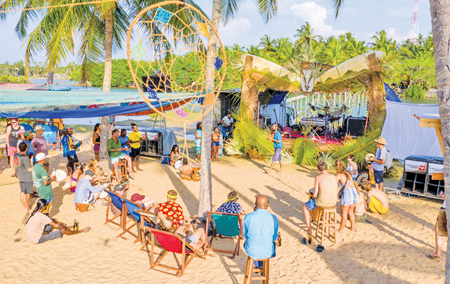
The multidisciplinary lineup features a range of talented artists including A.R.M., Ashen, Bilāla, and many more.
The festival marketplace will feature unique offerings such as tattoos and upcycled clothing, alongside delicious food stations highlighting slow fashion. Additionally, engaging exhibitions will showcase Kalpitiya’s kids’ photography, ocean waste installations, and immersive projections.
Festival-goers can also look forward to film screenings, including premieres like “Monsters Cave,” as well as thought-provoking panel discussions focused on changing narratives and the future of ocean tourism. To enhance the festival experience, a variety of free activities will be available, including camping, water activities, and games like beach volleyball and pétanque, making it an unforgettable celebration of art, community, and sustainability.
The Burning Donkey Festival caters to all ages, creating an inclusive atmosphere. Dilsiri said, “We have specially designed kids’ workshops that emphasize fun and sustainability, ensuring that families can engage in activities together.”
Attendees can choose from an All-Inclusive Pass for Rs. 15,000, which grants unlimited access to workshops and various performances, or opt for the Festival Pass for Rs. 10,000 for music and cultural events.
Kite surfing in Kalpitiya
Kite surfing in Kalpitiya has blossomed into a thriving industry, largely thanks to pioneers like Dilsiri Walikala, who has been instrumental in shaping the region as a premier destination for this exciting water sport. With its perfect wind conditions and breathtaking landscapes, Kalpitiya attracts avid kite surfers from around the globe. Dilsiri, who founded Kite Surfing Lanka, said that the sport not only draws an international clientele but also supports local economies. “Kite surfing is more than just a sport; it’s an opportunity for economic growth,” he said. Many locals have transitioned from traditional fishing roles to become kitesurfing instructors or operators.
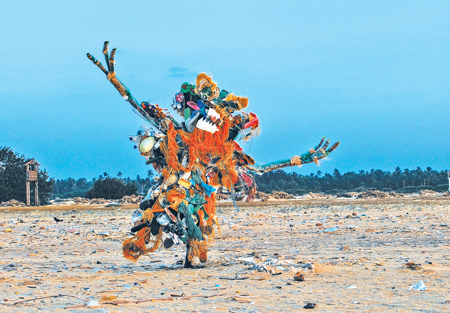
As Dilsiri explained this shift has allowed them to gain valuable skills and create sustainable livelihoods, ultimately leading to improved quality of life within these communities. Moreover, as travellers come to experience the thrill of kite surfing, they contribute significantly to the local tourism economy — spending on accommodations, dining, and other activities in the area. Dilsiri’s dedication to responsible tourism is evident in his efforts to ensure that as Kalpitiya’s popularity grows, the impact on the environment and local culture remains positive. By fostering this sport, he propels not only Kalpitiya’s reputation but also Sri Lanka’s potential as a notable player in the global tourism landscape.
Sustainable tourism
Sustainability doesn’t stop at the festival experience; it extends to the tourism sector as a whole. Dilsiri’s lengthy involvement in hospitality has shown him the impact and potential of eco-minded tourism. “Sri Lanka is blessed with an incredible environment and rich culture, yet the infrastructure must evolve to accommodate our growing tourism sector,” he said. He advocates for regenerative tourism, which focuses on revitalizing ecosystems and local communities.
As someone deeply rooted in the kite surfing community, Walikala has seen first-hand how this sport has transformed Kalpitiya into a global hotspot. He said, “Kite surfing attracts a different market — often wealthier tourists who contribute more economically.” The profits from this sport are reinvested into local communities, fostering a cycle of empowerment and sustainability.
Dilsiri is optimistic about the future, urging others to embrace the festival spirit. “We can have fun while making responsible choices,” he said.
For those seeking an unforgettable cultural journey combined with a sense of purpose, the Burning Donkey Festival is a must-see event that promises to celebrate Sri Lanka’s beauty while inspiring change for the better.
